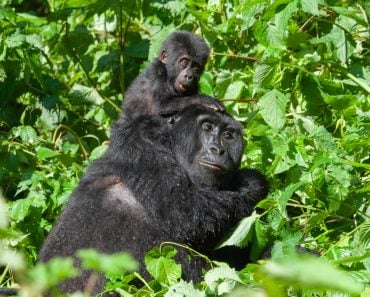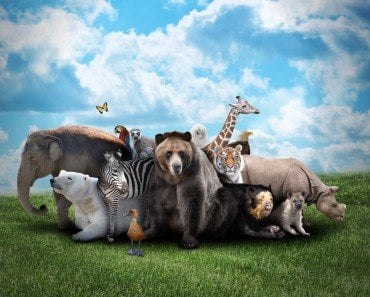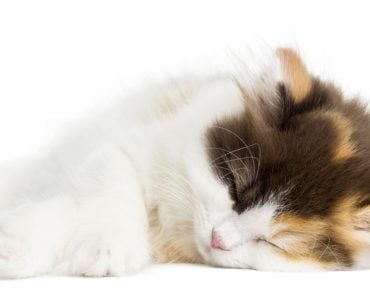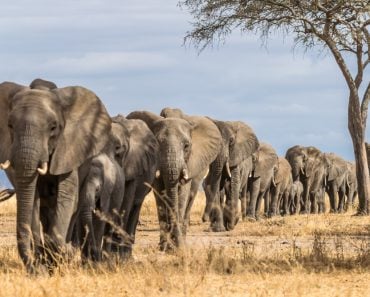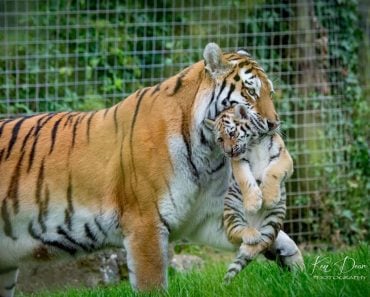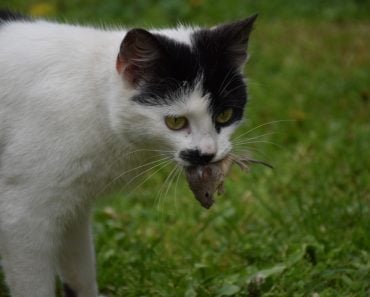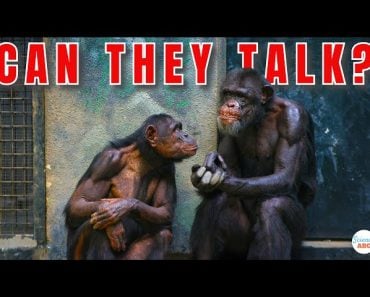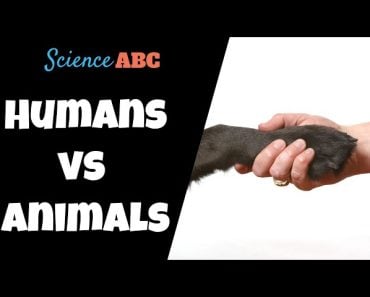In the natural world, researchers have often seen elephants, monkeys, dogs, and even aquatic creatures like dolphins apparently mourning when they lose a beloved companion or a progeny. Some animals understand the permanency of death and mourn their deceased companions in a way that is similar to how humans do.
In the natural world, researchers have often seen elephants, monkeys, dogs, and even aquatic creatures like dolphins apparently mourning when they lose a beloved companion or a progeny. Do animals really understand death, and mourn loss like humans? Or are we are unjustly mixing our understanding with their behavior? To better understand this, let’s look at the pertinent questions pertaining to death and mourning in animals. We will also look closer at how specific species respond to the death of their companions or their closely attached mortal.
Recommended Video for you:
Do Animals Bereave Their Dead Companions?
This is the most critical question related to animal behavior around death. For ages, Pythagoreans believed that animals experience the same set of emotions as humans do. Close to two centuries ago, Darwin, the Father of Evolution, in his book The Descent of Man and Selection in Relation to Sex, confirmed that “the lower animals, like a man, manifestly feel pleasure and pain, happiness, and misery”.
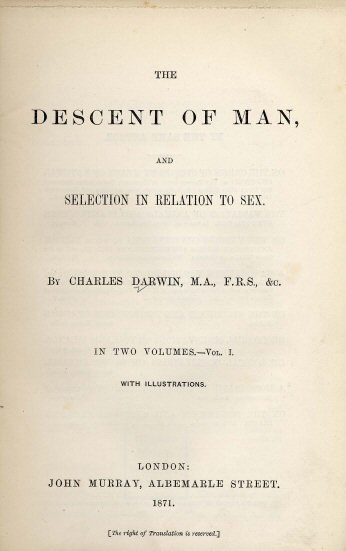
Modern research provides compelling evidence that at least some animals feel a full range of emotions, including love, fear, happiness, sadness, shame, embarrassment, resentment, jealousy, anger, relief, disgust, despair, and grief. Considering that, a case of real mourning over death is possible and typically happens with mothers and offspring in mammals, according to recent scientific studies. Scientists believe that most mammals and birds develop some degree of bonding upon interaction with their fellow species members and kin, so if they happen to die, they’re apparently affected by it.
Is Their Mourning Human-like?
To say that animals ‘mourn like humans’ is a pretty big statement. Animal-behaviorists and anthropologists have discordant opinions about this particular issue, although they do agree that animals feel distressed upon the death of a fellow mate.
In fact, in primates like chimpanzees, it is often observed that if one member of the group dies, other members stop eating food for a few days. Some members become completely silent, despite being previously observed and documented for their active/playful personality. They also stare at the corpse for a long time, and will even try to revive the body in some instances. This is something that we humans do too, albeit rarely, and often in a shocked state of mind following the sudden death of our loved ones.
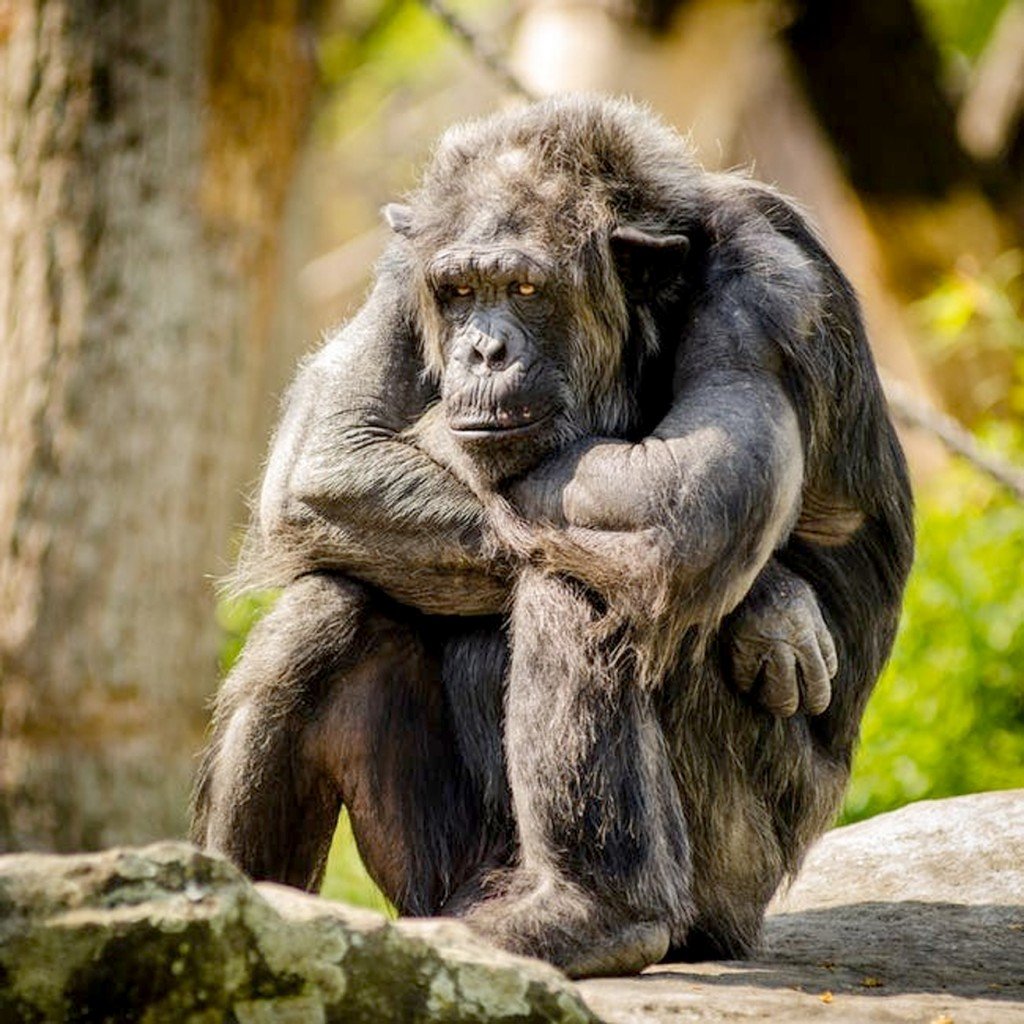
How Can We Be Really Sure They Mourn?
During his research on primate behavior, Frans de Waal, a renowned primatologist, observed an interesting incident that confirmed that animals (especially mammals) really do mourn. He recounts an incident where a baboon mother lost her baby to a predator. A few weeks later, she returned to the same area where she had lost her baby. After looking all around the space, she climbed into a high tree branch and began wailing—as if remembering and crying for her offspring. That gives a strong indication that she remembered what had happened there and was in despair after losing her baby.
Do They Realize That Death Is Permanent?
According to Frans de Waal, primates certainly understand the permanency/irrevocability of death. They realize that once an individual is dead, they no longer move or shake or make any other motions/interactions. To justify this belief, de Waal recollects an anecdote pertaining to bonobos.
During his research in the wild, he found that a group of bonobos had discovered a very dangerous-looking snake in the forest. They were terrified of it. To shoo away the snake, they poked it with sticks. Later, the alpha female of the group took a bold step and grabbed the snake by the tail. She then smashed the snake with stones resulting in its death. After that incident, the young bonobos picked up the snake corpse, hung it around their necks, walked around with it and started to play with it. While this incident might appear grotesque to some soft-hearted people, it goes to prove that, although bonobos knew the snake was a dangerous predator, once dead, it became innocuous and unable to cause any harm to them.
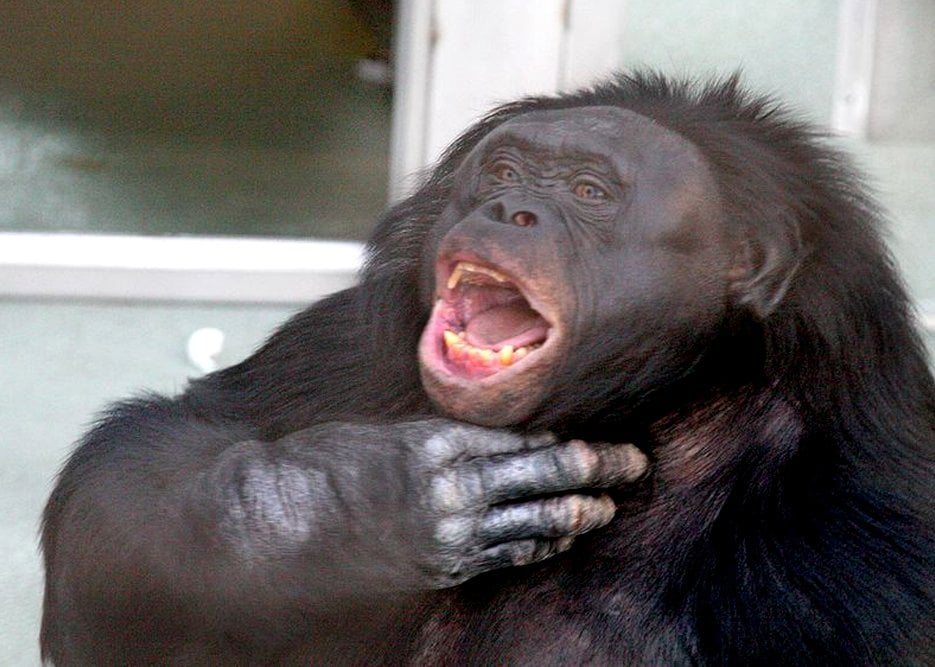
Do Some Animals Dig A Grave For Their Deceased Companion?
As a part of the culture in many popular religions, humans dig graves for individuals who pass away. In fact, this practice of digging graves dates back to the era of Homo Naledi—ancestors of present-day humans. A research team in South Africa studying the evolution of humans claimed that Homo Naledi used to bury their dead, arguing that trait as a true indication of humanity.
So, do other animals perform such a human-like behavior—digging a grave for the deceased? The answer is no. They don’t dig graves, although it is sometimes observed that they throw debris or leaves over the cadaver. This is usually to cover the body, a part of an anti-predator defense mechanism—to prevent predators/scavengers from being attracted to the rotting carcass. This response of animals is not as intentional or systematic as humans digging a grave for the deceased.
Do Animals Mourn The Deaths Of Other Species?
This is a fascinating question, as there are many cases where animals grieve for creatures that do not belong to their own species. Fortunately, such occurrences are also formally studied and documented. One such event happened in the Berlin Zoo! A few years back, the Berlin Zoo was getting a lot of tourist attention for a friendship that had developed between a cat named Muschi and a bear named Mauschen. In fact, the camaraderie was so strong between the two that the pair became virtually inseparable. Sadly, after years of their bonhomie, when the bear died, the cat refused to leave her companion’s enclosure. Muschi, the cat, simply stayed there and kept meowing mournfully. The zoo officials witnessed this moment and the tourists were completely heartbroken at the powerful sight.

Although ‘mourning over the dead’ in animals may be debatable, evidence shows it to be abundant in nature. From chimps to cats to crows, animals grieve in a way much like humans do. Animal behaviorists, primatologists, anthropologists, and biologists are working hard every day to research and document how and why animals mourn. With the increasing interest of researchers in this area, we can expect to gradually develop a more profound understanding of the complex species with which we share this planet.


